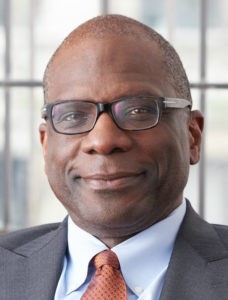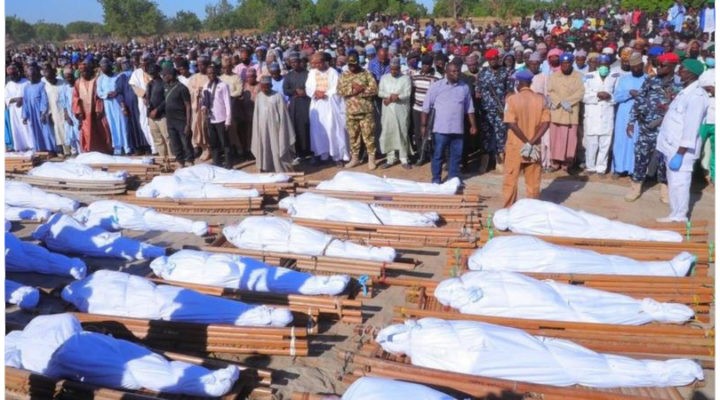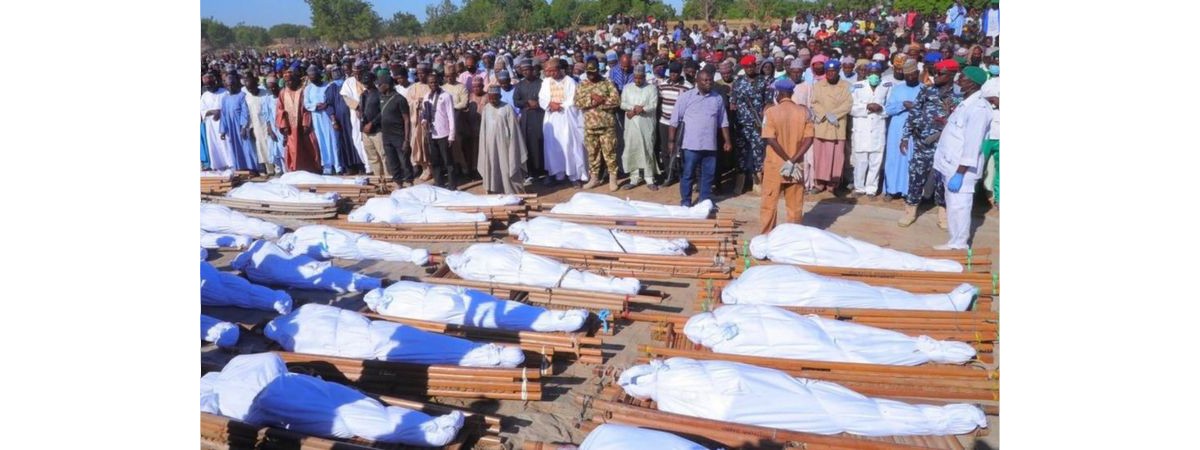In the past six decades since gaining independence from Britain, Nigeria — Africa’s most populous country — has faced one crisis after the other that threatened to undermine its corporate existence. While the country was able each time to survive the threats, the current security challenges bedeviling the country, with ethnic and religious dimensions, could be the nation’s undoing, some fear.
The fear is not out of place, given daily or weekly media reports of the situation and failure of security agents to stem the attacks of bandits and terrorists in the country.
Dozens of deaths
On Sunday, Sept. 26, more than 30 persons reportedly lost their lives when some persons described as “Fulani herdsmen” invaded Madamai and Abun communities, two majority Christian villages in the Kaura local government area of Kaduna State, in northern Nigeria.
Prior to that, 12 persons were killed in an attack on Peigyim village, near Kibori, in theh Atyap Chiefdom of Zangon-Kataf Local Government Area of the same Kaduna State by suspected Fulani militants.
A day before that, in the same locality, Silas Yakubu Ali, a pastor, reportedly was attacked and killed by persons yet to be apprehended.
These are just a few instances of the security lapses in the country in recent weeks.
Group alleges 4,400 Christians hacked to death
According to InterSociety, a nongovernmental organization involved with human rights issues in Nigeria, “Nigerian Muslim jihadists, comprising state actor and non-state actor radical Islamists, had in the past nine months of 2021, or January to September, a period of 270 days, hacked to death no fewer than 4,400 defenseless and unprotected Christians (with) 20 Christian clergies (also) killed or abducted.”
“Nigerian Muslim jihadists … in the past nine months of 2021 or January to September, a period of 270 days, hacked to death no fewer than 4,400 defenseless and unprotected Christians.”
It adds that in the “untamed anti-Christian genocidal killings and property violence, the number of sacred places of worship and learning … severely attacked by the jihadists since January 2021 has risen to between 350 and 400,” and that “not less than 3,500 traveler and sedentary Christians have also been abducted in the nine months of 2021 gone by; with several dozens of them feared killed in captivity. In all, an average of 490 Christians were killed in each of the past nine months and 16 in each of the past 270 days.”
Other religious minorities targeted
It is, however, not just Christians who have borne the brunt of attacks from terrorists and bandits in Nigeria. Muslims and mosques also have been targeted by the Boko Haram terrorist group since 2009. While waging sustained attacks on Christian targets over the years, Boko Haram — which has an avowed hatred for Western education and seeks to create a caliphate in the country — also targets Muslims that do not share its violent ideology, or young students in the majority Muslim northern region looking to brighten their future through education.
A 2016 paper by Alex Thurston, commissioned by the Brookings Institution, states that “most of Boko Haram’s victims have been Muslims. Shekau (the group’s former leader now believed to have died) claimed to be imitating the Prophet by massacring ‘unbelievers’ in Northeastern communities.”
‘Very troubling trends’
In assessing Nigeria’s precarious security situation, a major concern of some observers is that the country’s leadership headed by Muhammadu Buhari, who assumed power in 2015, has not been able to stop the attacks, crack down or effectively prosecute culprits. And this failure not only led to Nigeria been declared a Country of Particular Concern by the U.S. State Department in December last year, but also increasingly led to Christians and religious groups calling out the government for failing to bring the perpetrators to account.
With the momentum of attacks increasing since last year and security forces unable to bring the situation under control, Frederick A. Davie, commissioner at the U.S. Commission on International Religious Freedom, said Nigeria deserves to be redesignated a Country of Particular Concern by the U.S. State Department.
While congratulating Nigerians on their country’s independence anniversary on Oct. 1, Davie told BNG that USCIRF has observed “very troubling trends in Nigeria” on the issues of inter-religious freedom or belief.
“We are particularly concerned about attacks on vulnerable religious communities, particularly religious minority communities.”
“For example, we are particularly concerned about attacks on vulnerable religious communities, particularly religious minority communities, without any seeming robust response from the government to hold those people who do those violent attacks accountable,” he said. “So we are concerned at USCIRF about attacks on religious communities that happen with impunity where the government doesn’t sufficiently address them.”
As examples of violence with impunity seen in the country, Davie mentioned the recent killing of a Christian minister, Yohanna Shuaibu, in Kano, Northern Nigeria, by a violent mob for his alleged involvement in converting a local member of a Muslim family to Christianity; the attack of two Christian communities that led to death and destruction in the lands; the killing of eight Shia Muslims by Nigerian security forces; the targeting and kidnapping of Christian and Muslim students by terrorists and bandits; the violent attacks on sacred religious celebrations and gatherings during Ramadan this spring (by suspected terrorists) as well as two Christian congregations on Christmas Eve.

Frederick A. Davie
Other issues of concern for USCIRF, Davie said, are the arrest of Mubarak Bala, leader of Nigeria’s humanist association, who was accused of creating public disaffection by posting content considered blasphemous, and the detention of Yahaya Sharif Aminu, a 22-year-old musician, accused of insulting the Prophet Mohammed in a private social media message. Both Bala and Aminu were adopted by Davie as religious prisoners of conscience through USCIRF’s religious prisoners of conscience program.
Still other matters of concern to USCIRF in Nigeria, according to commissioner Davie, are the treatment meted out to Sheik AbdulJabbar Nasiru Kabara, who was charged with blasphemy and incitement by Kano State authorities, the arrest of some persons accused of engaging in LGBTQ activities deemed by the Hisbah Board in Kano State to be against the law of nature, as well as another policy in the state requiring poets and singers to submit their materials for vetting by a censorship board for approval.
“These are some violations of religious freedom that are observed and documented to have gone on in the country, and the government has done little to respond to these violations of religious freedom and, in too many cases, has supported violations of religious freedoms by its own actions,” Davie said.
A double standard?
He wondered why the Buhari administration was unable to rein in criminals and terrorists yet succeeded in hunting down and apprehending key leaders of a separatist group in the southeast part of the country spearheaded by Nnamdi Kanu, who was arrested outside Nigeria in late June.
“The perpetrators of these attacks operate with impunity and authorities fail to investigate them and hold them to account.”
“What our investigators, research and conversations with our colleagues in Nigeria is telling us is that often, the perpetrators of these attacks operate with impunity and authorities fail to investigate them and hold them to account. According to Nigerian authorities, the country does not have the capacity to do anything more than it is currently doing to hold perpetrators accountable for religious violence. We believe in USCIRF this argument is selective at best based on Nigeria’s robust response to Shia Muslims, to growing violence by Biafra separatists in the country’s southeast.
“If Nigeria’s government can launch a speedy campaign against political dissidents in the southeast in a matter of months, why has it not mobilized the same resources to address sectarian violence and religious freedom violations in the country?” he asked.
The clamor for Nigeria to be reclassified a Country of Particular Concern, he said, is justified because the country “has engaged in systemic, ongoing and egregious violations of religious freedom of belief.”
And doing so could have an effect through U.S. foreign policy and sanctions, he added.
Anthony Akaeze is a Nigerian-born freelance journalist who currently lives in Houston. He covers Africa for BNG.
Related articles:
Boko Haram is still plaguing Nigeria claiming to do God’s work


